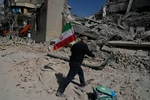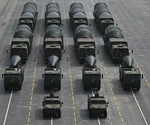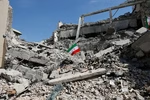
By forming new commissions which would review what happened during the 1992-95 war in Srebrenica and Sarajevo, the Government of Republika Srpska (RS), the Serb-majority part of the country, is trying to deny the findings of two international courts, RS Vice President Ramiz Salkic said on Thursday.
The move creates instability and insecurity, he said.
Authorities in the semi-autonomous RS entity announced the establishment of commissions that would investigate the suffering of Serbs in Sarajevo and of all peoples in the eastern town of Srebrenica.
Officials from the ruling party in the RS, the Alliance of Independent Social Democrats (SNSD), have for years been saying that what happened in Srebrenica in 1995 was not an act of genocide, despite international courts saying otherwise.
Salkic, a Bosniak from the Party of Democratic Action (SDA), pointed out that both the International Court of Justice and the International Criminal Tribunal for the former Yugoslavia (ICTY) had ruled that what happened in Srebrenica was genocide committed against Bosniaks and that neighbouring Serbia was criticised for not preventing it and not punishing those responsible.
“The forming of the so-called Commission for Srebrenica by the Government of the RS entity in Bosnia and Herzegovina is on the verge of implementing the phase of genocide denial, which includes denying and minimising the crimes that took place, glorifying war criminals and offending the victims,” Salkic said.
He said that the move endangers the implementation of Annexe VII of the Dayton 1995 Peace Agreement which ended the war in the country. The Annexe refers to the right of those who were expelled from their homes in Bosnia to return.
Setting up the Commission “produces fear, doubt and distrust in entity institutions,” Salkic said, adding that this produces a “non-secure environment for the victims who have returned to their homes.”
“The (RS) Government’s move produces instability, distrust and endangers peace,” Salkic said.
He called upon “all of those who are tasked with securing the implementation of the Dayton Agreement” to react and “protect the victims from further torture and humiliation by those who deny crimes and glorify war criminals.”
The victims expect that “such an assault on the truth and justice” will prompt a meeting of the Peace Implementation Council (PIC), he said.
The PIC is comprised of a number of foreign diplomats who oversee the Office of the High Representative, which is tasked with monitoring the civilian implementation of the Dayton Agreement.
“This move shows that the (RS) Government is not ready to build a democratic society, a society offering rule of law and equal opportunities for all,” he said.
Salkic argued that the move will foster the continuation of “discrimination and domination of stances, ideas and programmes of only the Serb people” in the RS, which is contrary to the state and entity constitutions and “basic European values.”
On July 11, 1995, Bosnian Serb forces overran the eastern Bosnian enclave and rounded up the town’s Muslim Bosniaks, separated men from women and little children and systematically executed some 8,000 men and boys.
The bodies of the victims were buried in a large number of mass graves. International and regional courts have sentenced 45 people for what happened in Srebrenica to a total of more than 700 years behind bars.
Kakvo je tvoje mišljenje o ovome?
Učestvuj u diskusiji ili pročitaj komentare





 Srbija
Srbija
 Hrvatska
Hrvatska
 Slovenija
Slovenija



























































